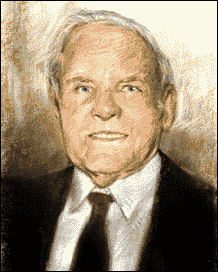INTERVIEW
How Good Is That System, Anyway?
John Hill Of Futures Truth
by Jayanthi Gopalakrishnan
Think of all those trading systems you see advertised and hyped. Haven't you wondered whether they work? Of course you have. John Hill is the president and founder of Futures Truth magazine, which tracks, tests, and evaluates trading systems and then publishes the results. Starting the magazine was his response to the many ineffective or downright fraudulent systems that he saw were being sold to would-be traders. STOCKS & COMMODITIES Editor Jayanthi Gopalakrishnan spoke to Hill via telephone on October 25, 2002, discussing trading systems, the characteristics that make them successful, and what traders should look for when choosing a system. Here is what he had to say.

The bottom line in a good system is whether it makes money. Are the claims realistically represented?
You've evaluated quite a few trading systems through the years with Futures Truth. How did that come about?
Futures Truth was organized back in the mid-1980s with the purpose of showing the actual performance of the many trading systems that were for sale, many of which were completely worthless. The magazine started out in a negative vein, in that I'd purchase a system that I would hear about, it would turn out to be worthless, and I'd get irritated. Finally, I decided enough was enough. That led me to start Futures Truth. Through the years, we took on anybody and everybody and had many, many threats of lawsuits.
Why?
We were dealing with multimillion-dollar businesses. In fact, we were sued once, but the judge threw it out. Futures Truth has been not a very profitable venture, but it has been a satisfying endeavor for me personally.
What happened with Futures Truth was we started publishing hard numbers about how the systems we tested worked. Soon, people with good systems and quality products came to us and asked us to start tracking their systems. We've created a few millionaires. This is mainly because some of these people had very good material, but didn't know how to get the word out to the public about their systems. We tested and tracked them, and published the positive results. A number of them have now gone on to manage big money. And that's how Futures Truth got started.
You said people with good systems came to you. How do you identify or define a good system?
Back when we started out, we identified people who offered fraudulent systems. The bottom line in a good system is whether it makes money. Are the claims realistically presented? I'd say right off that people can have a good system, but if they don't manage the system correctly, they'll lose money on it. That one system everybody is looking for does not exist. But there are good systems out there, which if properly financed will yield profitable returns. Most big money, especially in the managed futures industry, is traded systematically, as opposed to judgmental-type trading.
A lot of individual retail traders still trade based on intuition. I don't think many have quite caught on to the individual designing of trading systems. Do you think that's true?
I would say a couple of things. The average retail trader is looking for something that doesn't exist. They may pick a good system, but if it doesn't make money in six months, they'll quit and move on to something else. Almost every trading system I've seen will have flat periods where the system doesn't make money. That's one reason people don't trade systems, and it's also a reason a lot of retail traders lose money.
...Continued in the January 2003 issue of Technical Analysis of STOCKS & COMMODITIES
Excerpted from an article originally published in the January 2003 issue of Technical Analysis of STOCKS & COMMODITIES magazine. All rights reserved. © Copyright 2002, Technical Analysis, Inc.